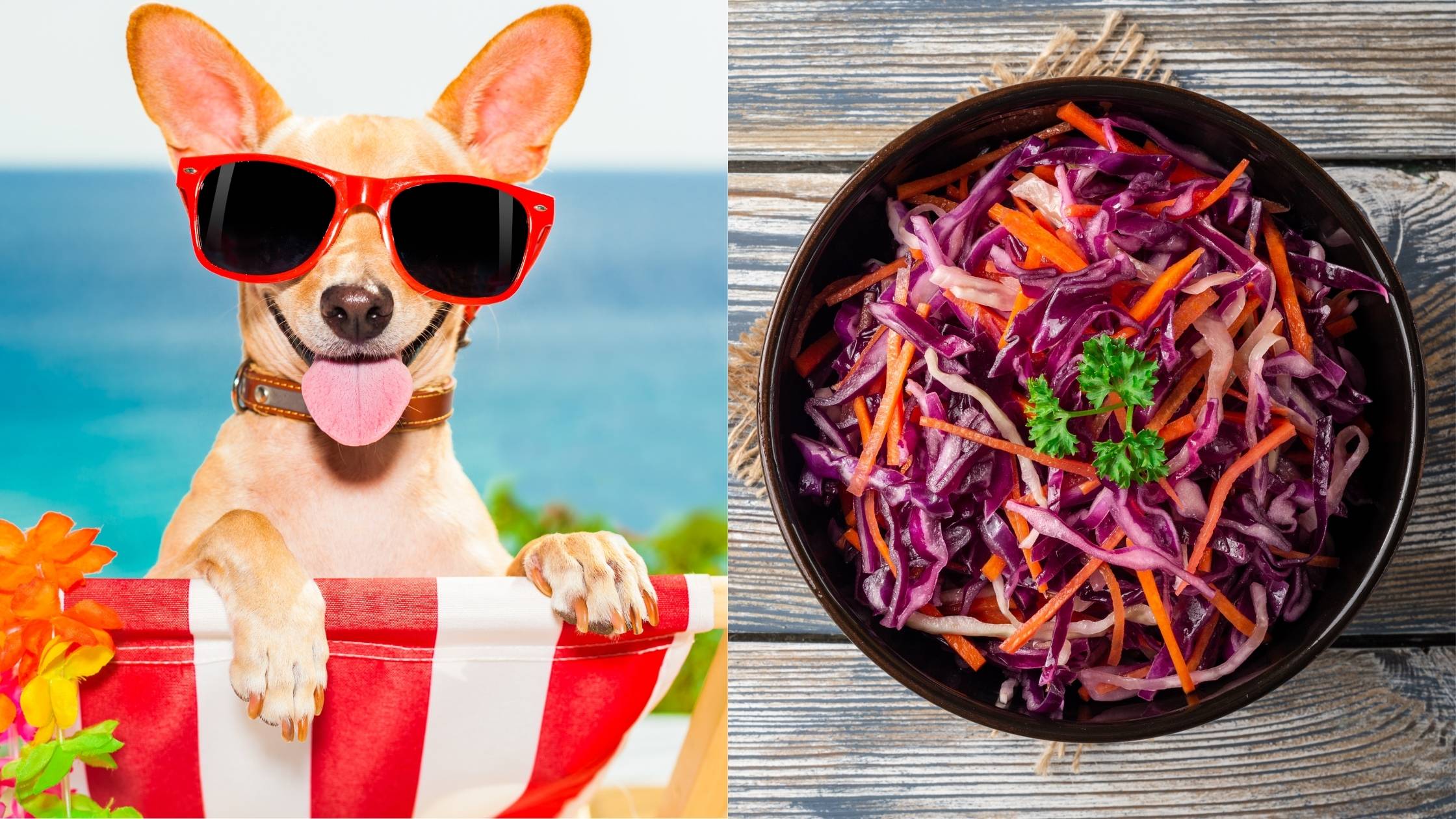Last Updated on 11/23/2021 by Veronica Jones
Coleslaw, also known as slaw, is a popular side dish for picnics and BBQs made from raw cabbage, onions, carrots vinaigrette and mayonnaise.
As a dog parent, you might like to share your tasty sides with your furry friend, but can dogs eat coleslaw? Is it safe? What risks are involved?
We answer the most commonly asked questions about dogs and coleslaw.
Can dogs eat coleslaw?
No, dogs should not eat coleslaw because it has absolutely no nutritional value for pets and can also contain several ingredients that could harm your furry friend.
Like many human foods, coleslaw is not made for dogs to consume.
Will a dog eat coleslaw? Dogs are inquisitive creatures and won’t know that a certain food is bad for them, which is why pet parents need to decide what to give a pup and what to avoid.
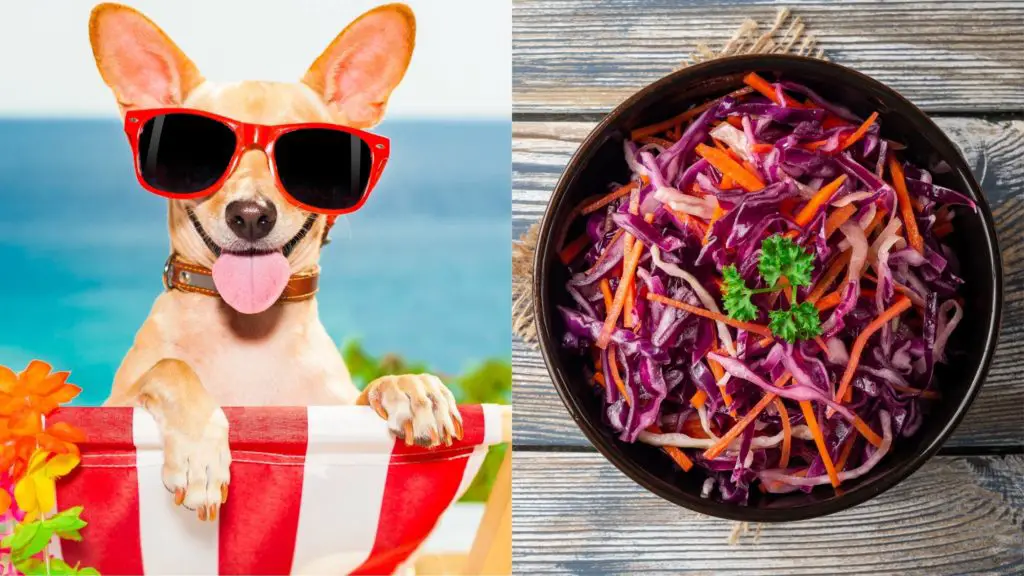
What coleslaw ingredients are bad for dogs?
There are several ingredients that are found in most store-bought coleslaws that are bad for dogs, including:
Onions
Onions should never be given to canines because they contain a toxic ingredient called N-propyl disulfide that can lead to onion toxicity in dogs.
If your dog has eaten onions, he may display some of the following symptoms:
• Lack of appetite
• Pale gums
• Lethargy
• Fainting
• Red urine
If you’re concerned that your dog is experiencing onion toxicity, you must get him to a vet immediately. In severe cases of onion poisoning, your dog may need a blood transfusion. It can even be fatal depending on the amount of onion consumed.
Raw cabbage
Can dogs have raw cabbage? Chopped up cabbage does contain some health benefits for canines, including the potential to reduce the risk of certain types of cancer in dogs. Too much cabbage consumption can cause a build-up of gas which can make your dog very uncomfortable.
However, coleslaw contains raw cabbage which is hard for your dog to digest. Raw cabbage contains thiocyanate which can suppress your dog’s thyroid gland. Raw cabbage can also pose a choking risk to many dogs.
Cream
Some dogs might not have a problem digesting cream, milk and dairy products, while others may be lactose intolerant and suffer from excessive gas, vomiting and stomach upset. Dog owners should be extra cautious giving their dogs spoiled cream or milk as this can be poisonous to pets and make them very sick.
Mayonnaise
Whilst not toxic to dogs, mayonnaise contains high levels of fats and sugars, which are not good for a dog’s digestive system. Too much rich food can cause an upset tummy and even pancreatitis. If your dog has consumed mayonnaise in any form and is experiencing diarrhea, vomiting or other digestive problems, you should contact your vet immediately.
Sugar
Surprisingly, some store-bought coleslaws contain sugar that can cause problems with teeth and weight. Too much sugar in a dog’s diet can cause vomiting and diarrhea as well as cavities and metabolic changes. Your vet may need to use a fluoride varnish or bonding agent to protect your dog’s teeth from cavity development.
Salt
Too much salt can not only make your pooch extremely thirsty but also lead to sodium poisoning which can be serious. If your dog eats high levels of salt, he may experience vomiting, diarrhea, high temperatures, seizures and tremors.
Preservatives
Preservatives such as BHT, BHA and ethoxyquin are very dangerous to dogs and can cause allergies and some types of cancer. You should only serve your dog natural foods that don’t contain any additives.
Your dog’s daily food should be packed full of vitamins, minerals and protein. Coleslaw does not provide any of these important nutrients. No matter how careful you are about your dog’s diet, if you give your pooch table scraps there is a chance that some coleslaw may end up in your four-legged friend’s bowl without you knowing.
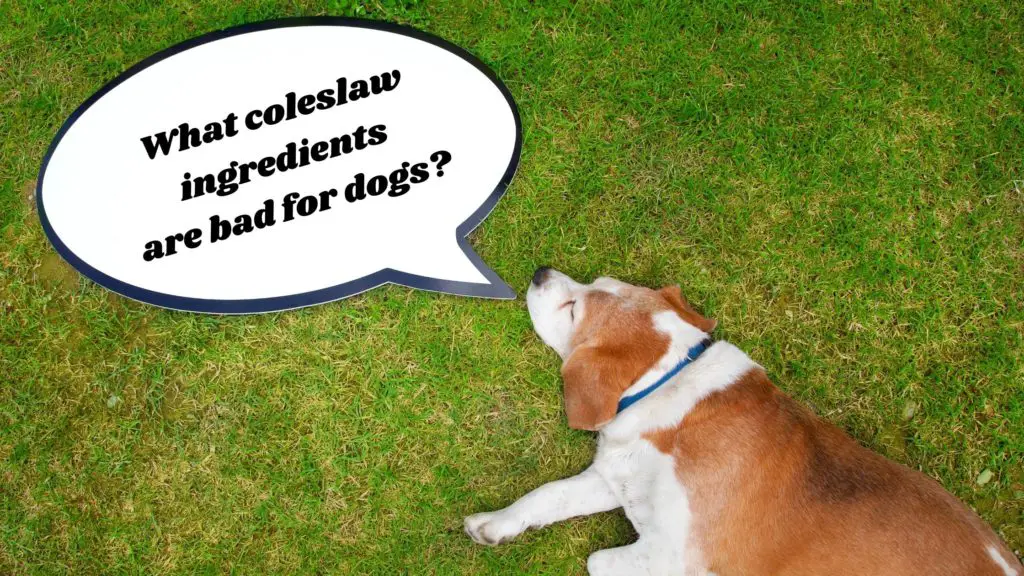
What happens if your dog eats coleslaw?
Several things could happen if your dog eats coleslaw including:
• A potential choking hazard from the raw cabbage.
• Diarrhea
• Vomiting
• Digestive problems from the raw cabbage.
Longer term health issues such as obesity and diabetes could occur from the high levels of sugar and salt. Overweight dogs also experience other health issues such as joint strain.
In rare cases, your dog could die from onion toxicity from eating coleslaw but they would have to eat a huge amount of it and be left untreated for that to happen.
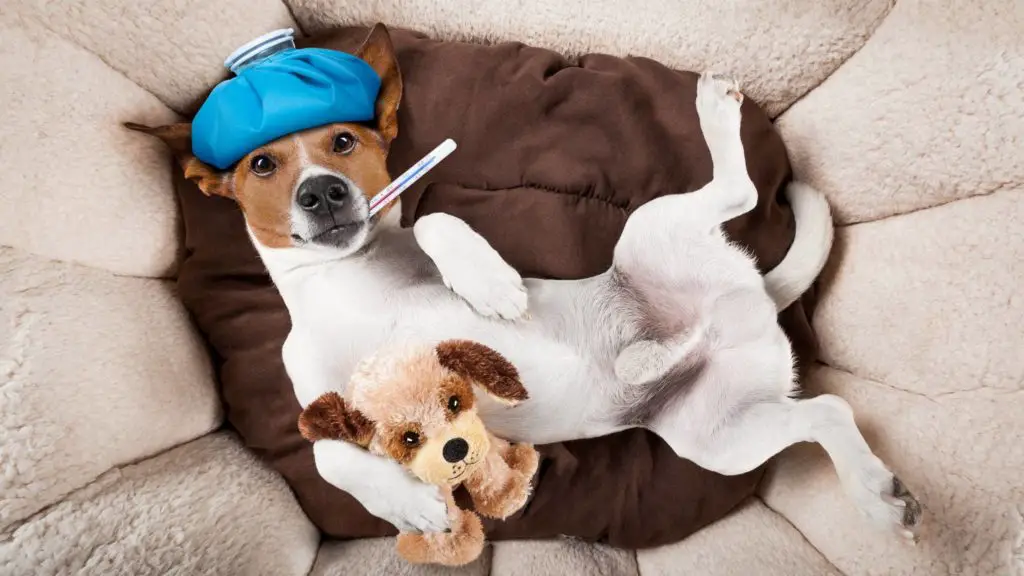
Dog-safe alternatives to coleslaw
A dog’s canned wet food and dry food will contain everything a dog needs to stay healthy. But, if your dog is watching you with those puppy dog eyes while you tuck into a side of coleslaw with your burger, give them one of these alternatives instead.
• Dogs are carnivals but some vegetables have several health benefits for canines, including broccoli, spinach, potatoes and carrots. Serve them to your dog cooked to munch on as a snack.
• Some fruits such as apples (if it’s cored and the seeds are removed), bananas and blueberries also make a healthy snack for dogs. Fruits are high in fiber, vitamins and antioxidants.
• There are lots of homemade, healthy doggie snack ideas available online. Give some a go and show your pooch just how much you love him.
Ultimately, your pup should be getting a balanced diet that is tailored to their needs. Highly processed foods should be avoided at all times because it is extremely hard for a dog’s body to digest and provides no nutritional value.
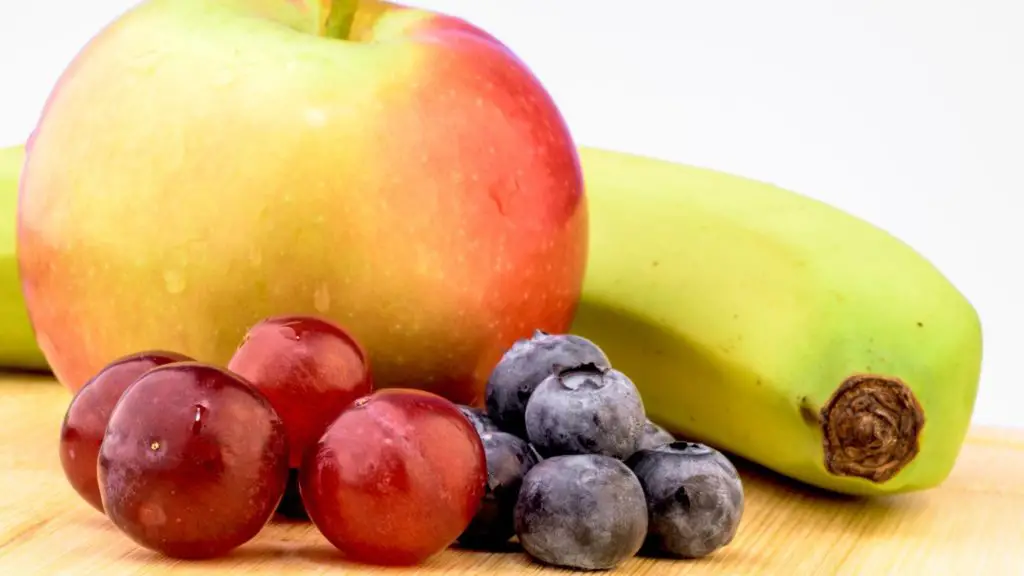
Dogs and coleslaw
If your dog eats a small amount of coleslaw, chances are they will be ok. Never purposefully give your dog coleslaw though because the toxic ingredients can make them very sick.
Dogs are great opportunists when it comes to getting their paws on human food, so it’s important to keep harmful things well out of reach.

